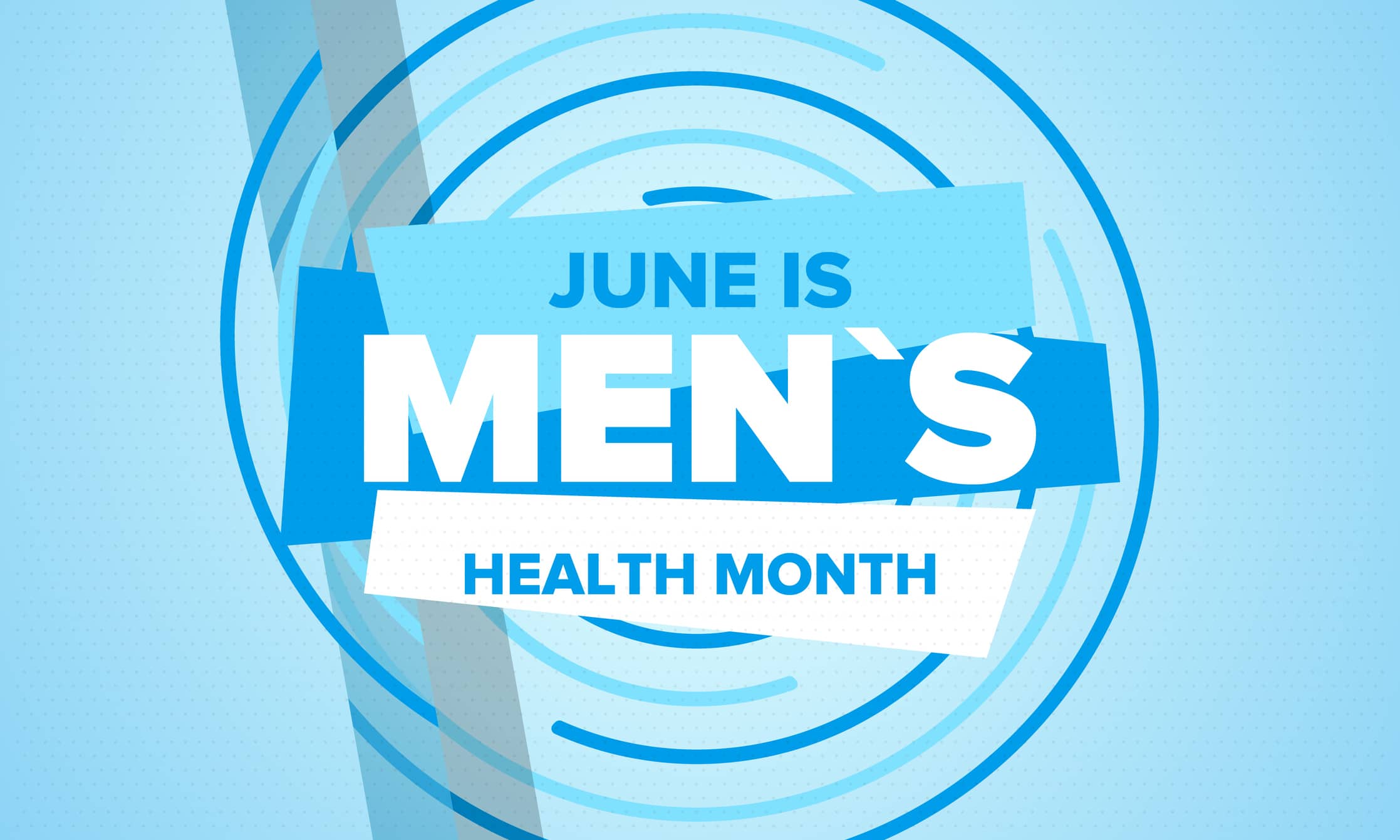For starters – Happy (belated) Father’s Day to all the rad dads out there.
In addition to Father’s Day, June also marks a special time on the calendar as it’s Men’s Health Month.
We wanted to honor this time of year to delve into some specific ways men can improve their health:
Getting under the (health) hood:
45.7%: According to Statista data from 2019, this is the percentage of men that die from either heart disease or cancer.
Sadly, these statistics haven’t changed much over the years.
Fortunately, a growing body of medical research has given more clarity to the causes of these diseases.
The best prevention to heart disease and cancer?
Early detection and lifestyle intervention.
Colonoscopies:
The American Cancer Society recommends that men with an average risk of colorectal cancer should start regular screening at age 45.
However, men with a family history of colon cancer or other risk factors should consult with their healthcare provider to determine the best time to start.
A colonoscopy allows for early detection of colorectal cancer, which is the third most common cancer in men in the United States. Regular screenings can help detect abnormal growths or polyps, which can be removed before they develop into cancer.
Prostate and Testicular Examinations:
Professional screenings (for the prostate) and regular self-examinations (for the testicles) are vital for early detection of prostate and testicular cancers.
Talk to your healthcare provider about when to start and how often to do these exams.
Blood Lab Panels:
Getting detailed blood labs – not just the standard ones offered by your general physician – are a helpful way to better understand your current state of health.
I (Dennis) recently ran my panels for the first time using Function.
For just $499, Function runs over 100 lab tests that screen heart, hormones, cancer, thyroid, nutrients, inflammation, toxins, kidney, liver, and autoimmunity.
For an additional fee, it offers access to cutting-edge tests like Grail’s Galleri, capable of detecting 50 types of cancer.
Each result is paired with easy-to-read actionable insights, derived from the latest research and a unique collaboration with some of the world’s top functional medicine doctors.
Mental Health:
According to Forbes Health, over 1/5 of adults in the US experienced a mental health condition.
Women who experienced an issue received mental health services at a rate of 51.2% while only 37.4% of men received services.
A large contributor to this gap is attributed to societal norms and gender roles which create a stigma that discourages men from expressing their emotions openly or seeking help.
If getting connected with a therapist feels overwhelming, consider online platforms such as Talkspace and Betterhelp.
Dudes Need Dudes:
The concept of men acting as “lone wolves” valorizes self-reliance and independence. While seemingly empowering, this idealogy more often leads to a sense of isolation and emotional detachment.
The idea of self-sufficiency creates a barrier for many men where emotions and vulnerabilities get suppressed which only exacerbates the feelings of loneliness and despair.
Contrary to the imagery of the lone wolf, strength and resilience are often found not in isolation, but in the collective.
Just as a wolf pack operates as a cohesive unit, drawing strength from its numbers and the diverse skills of its members, humans too are social creatures who thrive on connection and community.
This truth has been affirmed by numerous studies, which have shown that social connection can:
- improve physical health
- bolster mental wellbeing
- extend lifespans.
When men resist the allure of the lone wolf archetype and instead foster strong, supportive relationships, they can share their burdens, celebrate their triumphs, and find solace in the knowledge that they are not alone.
Man Meet-ups:
Men who hope to expand their social networks can explore:
- Sports & rec clubs
- Meetup groups (meetup.com has tons of options)
- Volunteer organizations
- Gyms and fitness classes
- Professional networking groups
- Men’s groups (shout out to The Wisemen Project)
Other Men-specific Health Hacks:
Stop carrying your cell phone in pant pockets:
Cell phones emit non-ionizing radiation and emerging research suggests that carrying them in your pant pockets may not be the best idea.
Some studies have indicated a possible link between cell phone radiation and reduced sperm count or sperm quality.
While further research is needed to fully understand this link, it might be wise to err on the side of caution and avoid carrying your phone in your pocket whenever possible.
Avoid tight underwear:
Tight underwear can increase the temperature of the testicles, which can reduce sperm production and overall reproductive health.
Even if you’re not interested in reproduction, reproductive health is an indicator of overall health, particularly in men, and is interconnected with other bodily systems.
Choosing looser, breathable, underwear made from fabrics such as cotton are likely best.
Consider cold therapy:
Cold therapy involves exposing the body to extremely cold temperatures for short periods of time. This can be done via cold plunging, cryotherapy, or even cold showers.
Cold therapy can help reduce inflammation, improve sleep, boost mood, and even improve metabolic health.
Additionally, by the same principle of avoiding tight underwear, it can help men maintain optimal testosterone production, supporting overall male health, including muscle growth, bone density, and sexual function.
Disclaimer: The information provided in this newsletter is for educational purposes only and should not be considered as medical advice. Always consult with your healthcare provider before making any decisions or changes to your healthcare plan.



